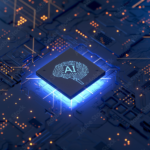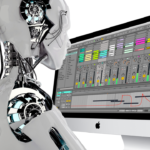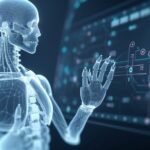AI in Healthcare Advancements and Applications
Artificial Intelligence (AI) has emerged as a powerful tool in the healthcare industry, revolutionizing patient care, diagnostics, and treatment. With its ability to analyze vast amounts of data, detect patterns, and make accurate predictions, AI is driving advancements that have the potential to improve outcomes, enhance efficiency, and transform healthcare delivery. In this blog, we will explore the advancements and applications of AI in healthcare and discuss its potential impact on the industry.
Medical Imaging and Diagnostics
AI has made significant advancements in medical imaging, aiding in the diagnosis of diseases such as cancer, cardiovascular conditions, and neurological disorders. Deep learning algorithms can analyze medical images, including X-rays, MRIs, and CT scans, to detect anomalies, identify patterns, and assist radiologists in making accurate diagnoses. AI-based image analysis improves efficiency, reduces human error, and enables early detection, leading to timely interventions and improved patient outcomes.
Predictive Analytics and Precision Medicine
AI algorithms can analyze patient data, including electronic health records (EHRs), genetic information, and clinical notes, to predict disease risk, treatment outcomes, and response to therapies. By leveraging machine learning and predictive analytics, healthcare professionals can make informed decisions, tailor treatment plans, and provide personalized care. AI also plays a crucial role in precision medicine, enabling targeted therapies based on an individual’s unique genetic makeup and characteristics.
Virtual Assistants and Chatbots
AI-powered virtual assistants and chatbots are transforming patient engagement and support. These tools can provide patients with personalized information, answer common healthcare questions, and triage symptoms. Virtual assistants can assist with medication reminders, appointment scheduling, and even monitor patients’ vital signs remotely. By enhancing patient communication and providing access to healthcare resources, virtual assistants and chatbots improve patient experiences and reduce the burden on healthcare providers.
Drug Discovery and Development
AI is revolutionizing the process of drug discovery and development, accelerating the identification of potential drug candidates and reducing the time and cost involved. Machine learning algorithms can analyze vast amounts of biomedical data, including genetic information, molecular structures, and clinical trial data, to identify promising compounds and predict their efficacy and safety profiles. AI-powered systems enable more efficient screening, repurposing of existing drugs, and the identification of personalized treatment options.
Health Monitoring and Wearable Devices
Wearable devices equipped with AI technology are empowering individuals to monitor their health and well-being in real-time. These devices can track vital signs, sleep patterns, physical activity, and even detect irregularities or potential health risks. AI algorithms analyze the data collected, providing actionable insights and alerts for individuals and their healthcare providers. Wearable devices enhance preventive care, facilitate early intervention, and enable remote monitoring, particularly for patients with chronic conditions.
Administrative and Operational Efficiency
AI is streamlining administrative and operational processes in healthcare facilities, reducing administrative burdens and improving efficiency. AI-powered systems can automate tasks such as appointment scheduling, medical coding, and billing, freeing up healthcare professionals to focus more on patient care. Natural Language Processing (NLP) algorithms enable automated transcription of clinical notes, facilitating accurate and timely documentation. AI also aids in resource allocation, optimizing staff schedules, and predicting patient flow, leading to improved operational efficiency.
Ethical Considerations and Data Privacy
As AI becomes more integrated into healthcare, ethical considerations and data privacy become paramount. It is essential to address concerns related to data security, patient privacy, bias detection, and the responsible use of AI technologies. Developing robust ethical frameworks, adhering to regulations such as HIPAA, and ensuring transparency in AI algorithms and decision-making processes are critical to maintain patient trust and confidentiality.


































